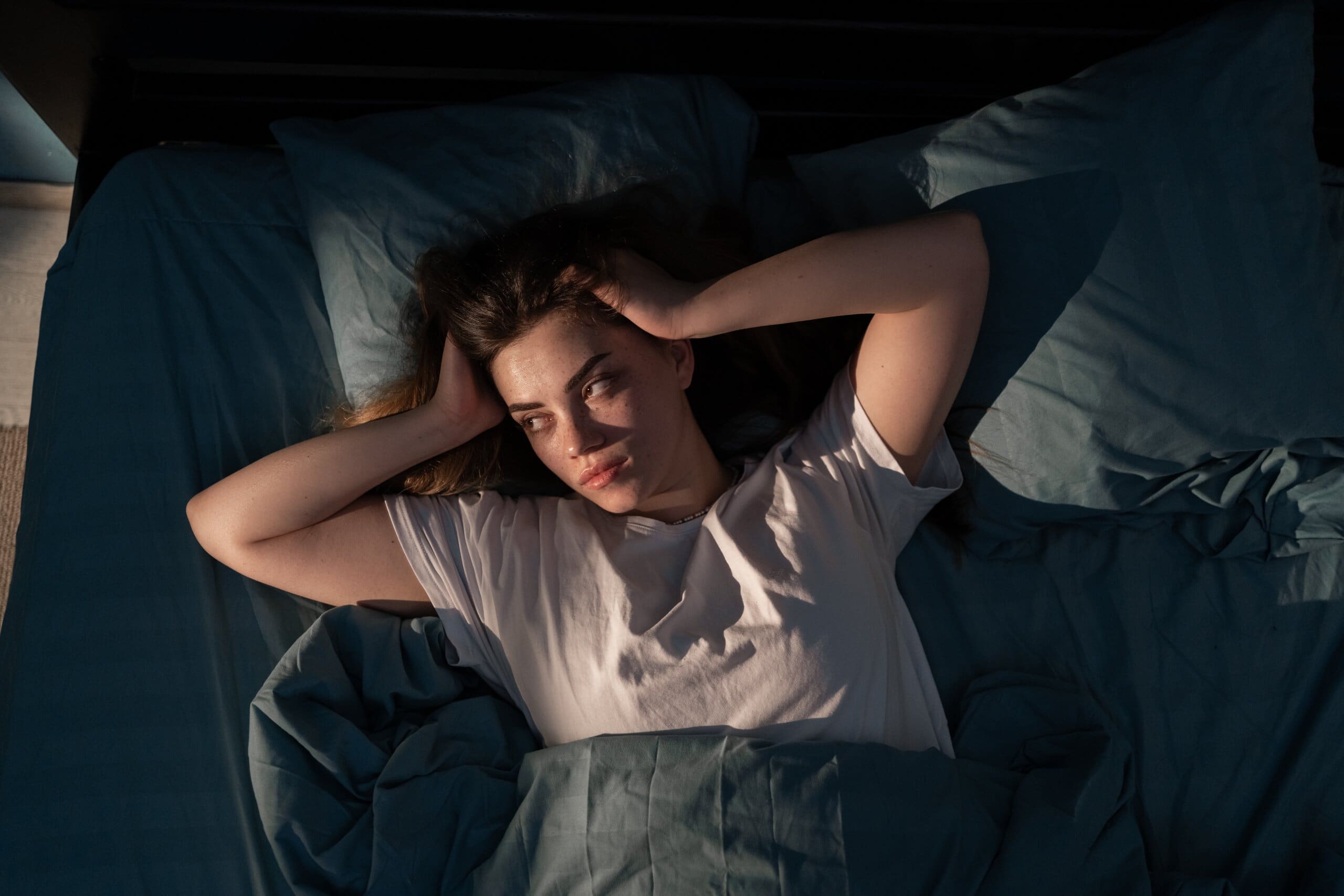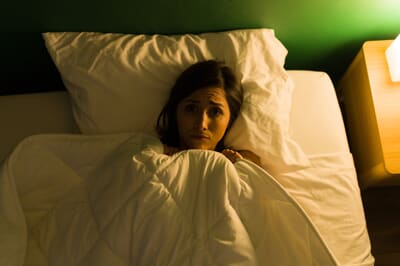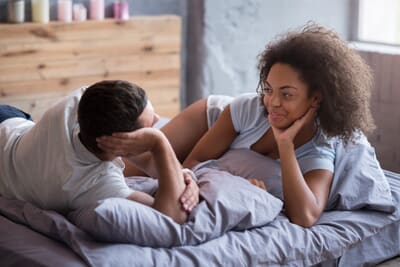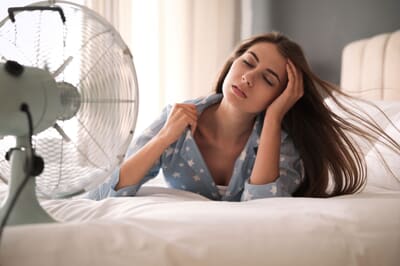If you’ve ever been lying awake at night struggling to sleep before a big event, then you probably know that you’re not alone in that regard. In fact, we’d wager that every single person has or will experience this phenomenon at some point in their life.
Whether it’s thinking about something cringeworthy that happened in the past, or playing out all the possible outcomes for whatever big event you have coming up in the future, this sort of anticipatory anxiety is incredibly common.
Studies suggest that at least 1 in 6 people in the UK may experience some form of mild anxiety every week, but is the level of such anxiety getting worse? And perhaps more importantly, is it starting to impact the amount of sleep people are getting in the UK?
To find out, we conducted a survey of 2,000 UK residents on whether or not they experienced anxiety before major life events, and whether or not they felt such anxiety impacted their sleep at the time.
Take a look at what we found out, below!
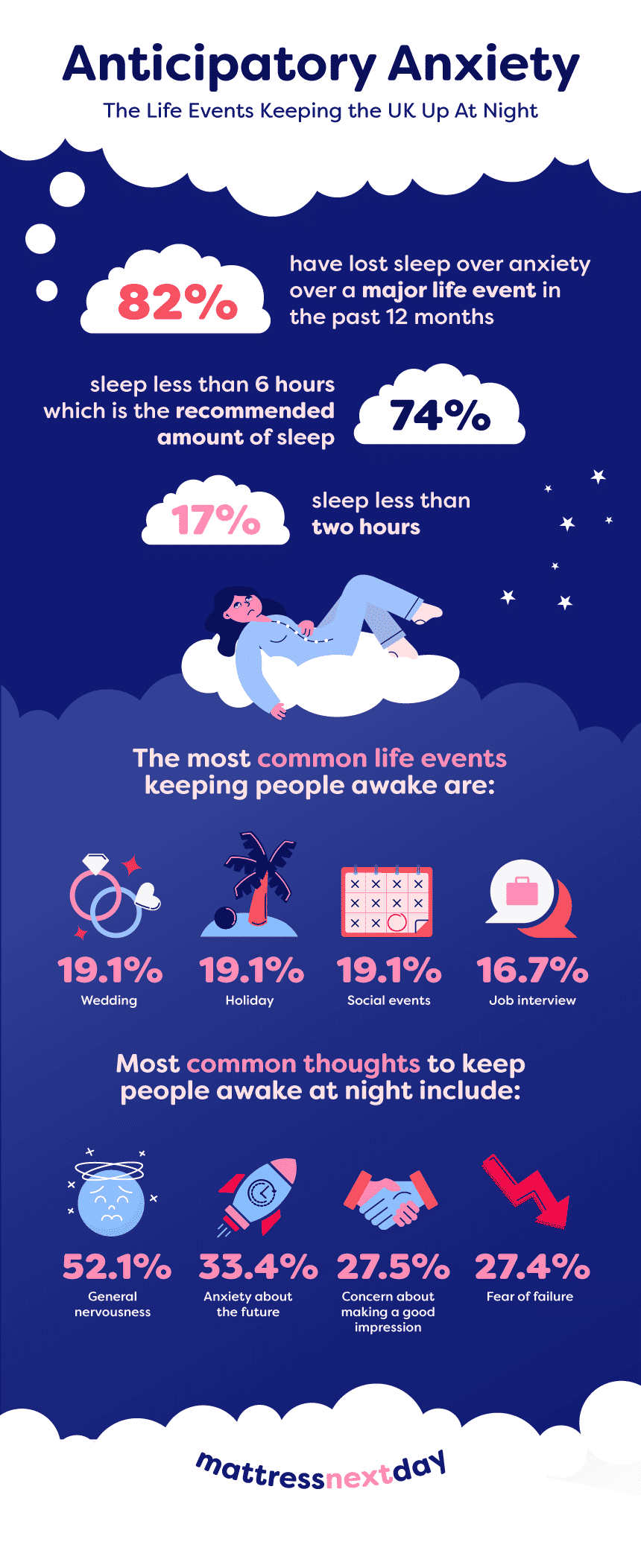
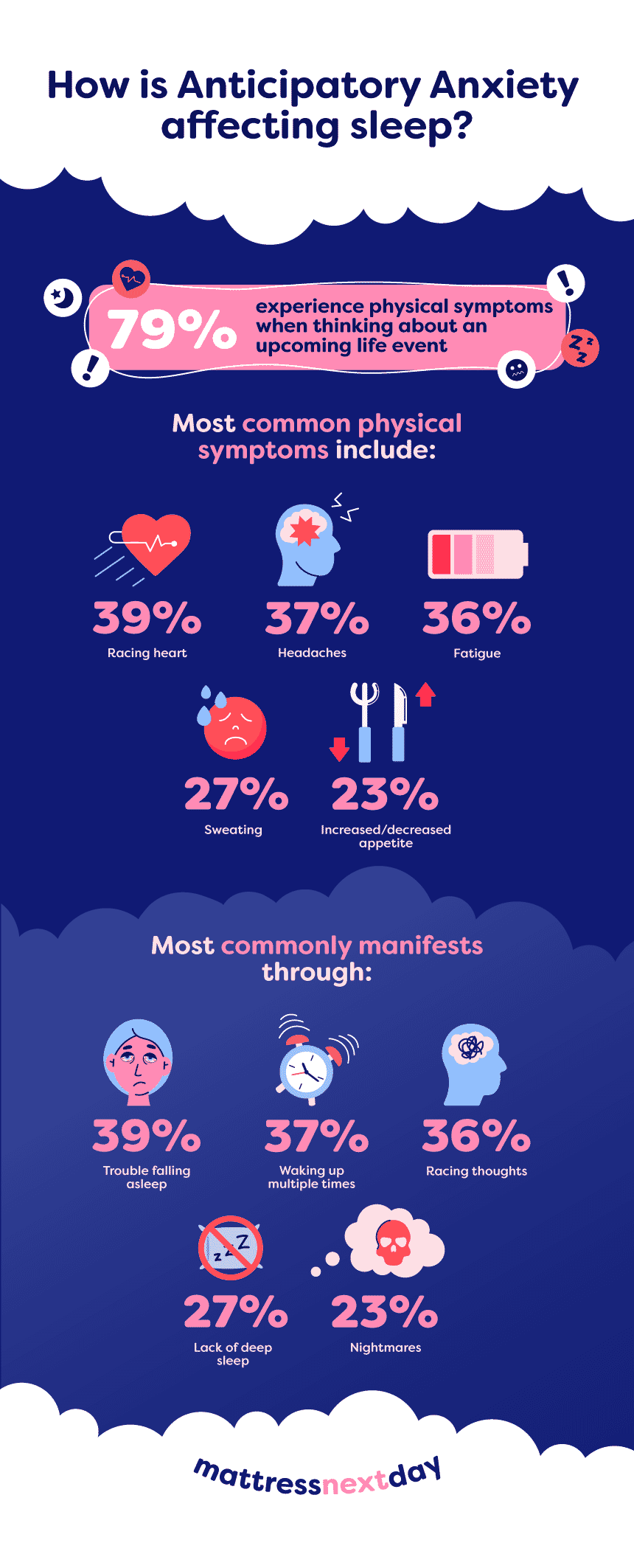
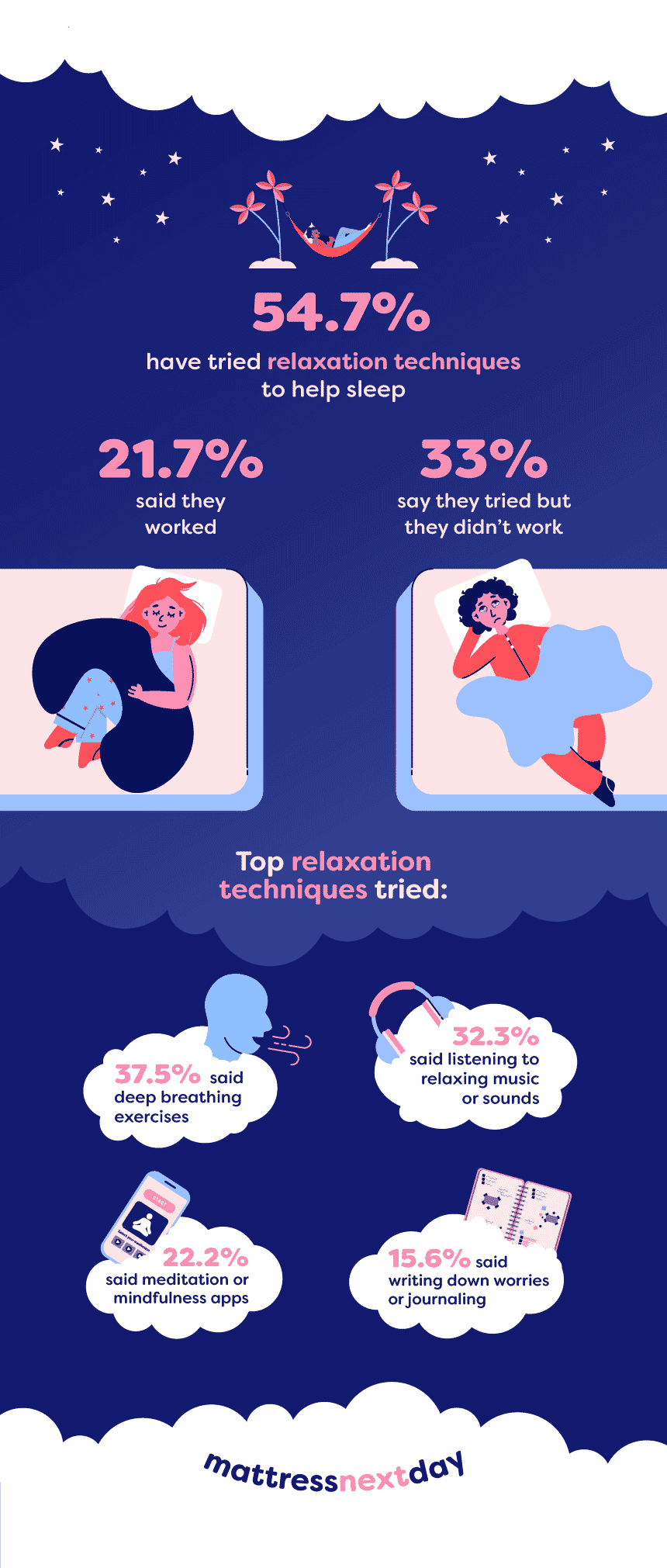
What is anticipatory anxiety?
First things first, before digging into our findings, we thought it might be worth highlighting exactly what anticipatory anxiety is, and how it manifests itself.
As the name suggests, anticipatory anxiety comes in the form of increased anxiety levels when anticipating a future event or situation. It’s incredibly common and most people will experience a mild form of it every so often.
However, those who live with serious anticipatory anxiety can experience increased anxiety levels for months leading up to big life events. This could simply be an increased sense of bodily tension, or it could be active thoughts and predictions focusing on potential negative outcomes – some may even avoid attending the event in question due to their anxiety.
Naturally, anxiety like this can be incredibly draining for the person experiencing it and can develop into sleep anxiety, causing more than a few sleepless nights when it’s at its height. So, if you think you might be experiencing serious anticipatory anxiety, it’s best to speak to your friends, family, or even a medical professional about your concerns.
Which core life events keep people up at night?
Starting with the basics, we first asked our survey participants to note which life events had caused them to lose sleep in the last 12 months. For some, there were none that sprung to mind. But for the vast majority (82.1% of respondents to be exact), they could point to at least one or more core life events over the course of 2024 that kept them awake.
As you may expect, the reasons were varied and far-ranging, with weddings, holidays, and social events all coming top of the list for 19.1% of those we spoke to. These were then followed by job interviews (16.7%), big work meetings (16.5%), key financial dates and big payments (14.1% and 13.9% respectively), and public speaking (12.3%).
As for how these events were keeping our respondents awake, 52.1% noted a vague sense of nervousness beforehand, while others (33.4%) flagged a general anxiety about the future. Many of those who responded also mentioned experiencing concerns about making a good impression or a general fear of failure, with it being a key sticking point for 27.5% and 27.4% of respondents in particular.
Finally, for an unlucky few, their anticipatory anxiety manifested itself in the form of forgetting what to say or do, as well as overwhelming emotions (22.3% for both), and for some, it even appeared as a profound sense of guilt (4.6%), all of which would work together to keep anyone awake well into the early hours of the morning.
How much sleep do people get before big events?
Given how prevalent anticipatory anxiety appears to be, it’s worth asking just how impactful it can be on the length and quality of our sleep each night. And based on the findings of our study, it’s not great news.
A full 74.1% of those who responded to our survey stated that they slept less than 6 hours every night, well below the recommended range suggested by sleep experts. Not only that, but at least 17.1% of survey participants said they had less than 2 hours of sleep a night!
Add to this the fact that most of the people we spoke to said that they only got 5.4 hours of sleep the night before a big event and it’s clear just how serious anticipation anxiety can be.
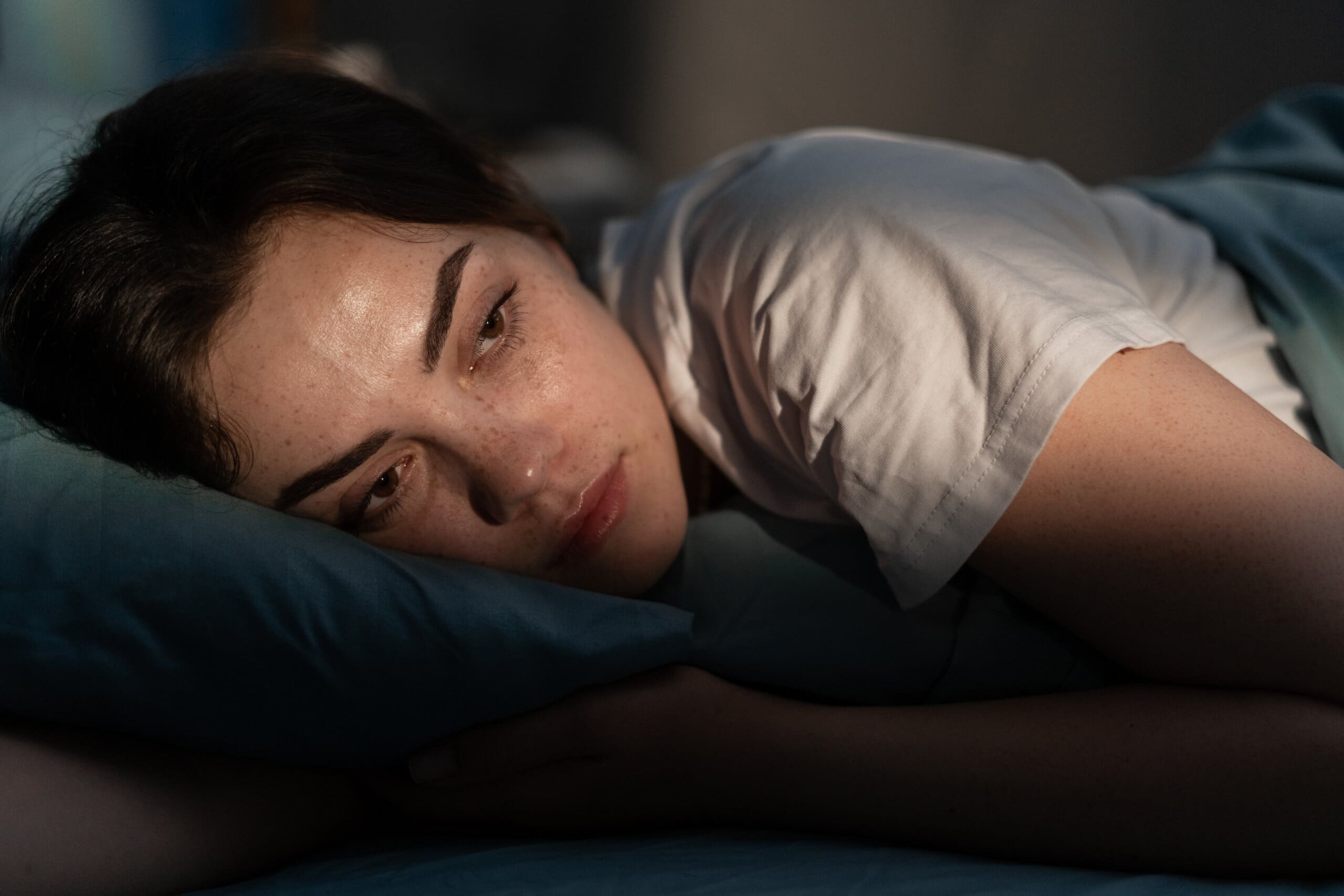
How does anticipatory anxiety affect different age groups?
While the stats we’ve mentioned cover a more general overview of how anxieties and life events keep people up, we also wanted to see if there were any distinct changes between different age groups – and as it turns out, there definitely are.
Indeed, as you may expect, concerns around major upcoming events and social occasions causing a lack of sleep tend to decrease with age, with those 65 or older reportedly being 6 times less likely to experience nighttime anxieties.
On the contrary, a staggering 90.3% of 18–24-year-olds have experienced physical symptoms of anxiety the night before life events, compared to only 59% of those aged 65 and upwards.
And in terms of what concerns the different age ranges the most, 18-24- and 25–34-year-olds are most likely to fear failure (38.9% and 39% for each group), while 35-44-year-olds have far greater concerns around job interviews – an interesting thing to note considering how much experience they might have in the world of work at this point.
Which core anxiety symptoms are causing a loss of sleep?
Although many who experience anxiety report a general sense of tension and uneasiness throughout their body, at least 78.6% of those we surveyed mentioned developing physical anxiety symptoms when thinking about an upcoming event, with the most common being a racing heart (34.8%) and stress headaches (26.1%).
However, several respondents also mentioned having far more serious symptoms, including fatigue (25.8%), increased or decreased appetite (22.9%), and even blurred vision (5.4%)!
As a result, when said participants did try to get some sleep before such life events, over half had difficulty actually falling asleep to begin with (54.9%) and just under half said they woke up multiple times in the night (47.7%).
Plenty of other people that we spoke to also noted that they experienced racing thoughts (36.6%), poor quality deep sleep (31.7%), and much dreaded pre-event nightmares (12.9%), which are all but guaranteed to keep you awake even if you did manage to drift off.
What methods are people using to overcome anticipatory anxiety?
Given how commonplace this sort of life event anxiety appears to be, what exactly are the people dealing with these struggles doing to overcome their fears and get as must rest as possible before key life events?
Well, at least half mentioned that they were trying (or had tried) relaxation techniques to help improve their sleep, but only 21.7% of respondents said such techniques actually helped them.
Instead, most people (37.5%) focused on doing deep breathing exercises or putting on relaxing music or soundscapes (32.3%). Others turned towards meditation and mindfulness practices (22.2%), while some got all their thoughts and feelings out on the page before bed in the form of journaling (15.6%).
Finally, when the event in question actually rolled around, some participants noted that they liked to drop the temperature of the room to help calm themselves (22.8%), while others tried listening to white noise or aromatherapy beforehand to settle any nerves they might be experiencing (16.1% and 14.3% respectively).
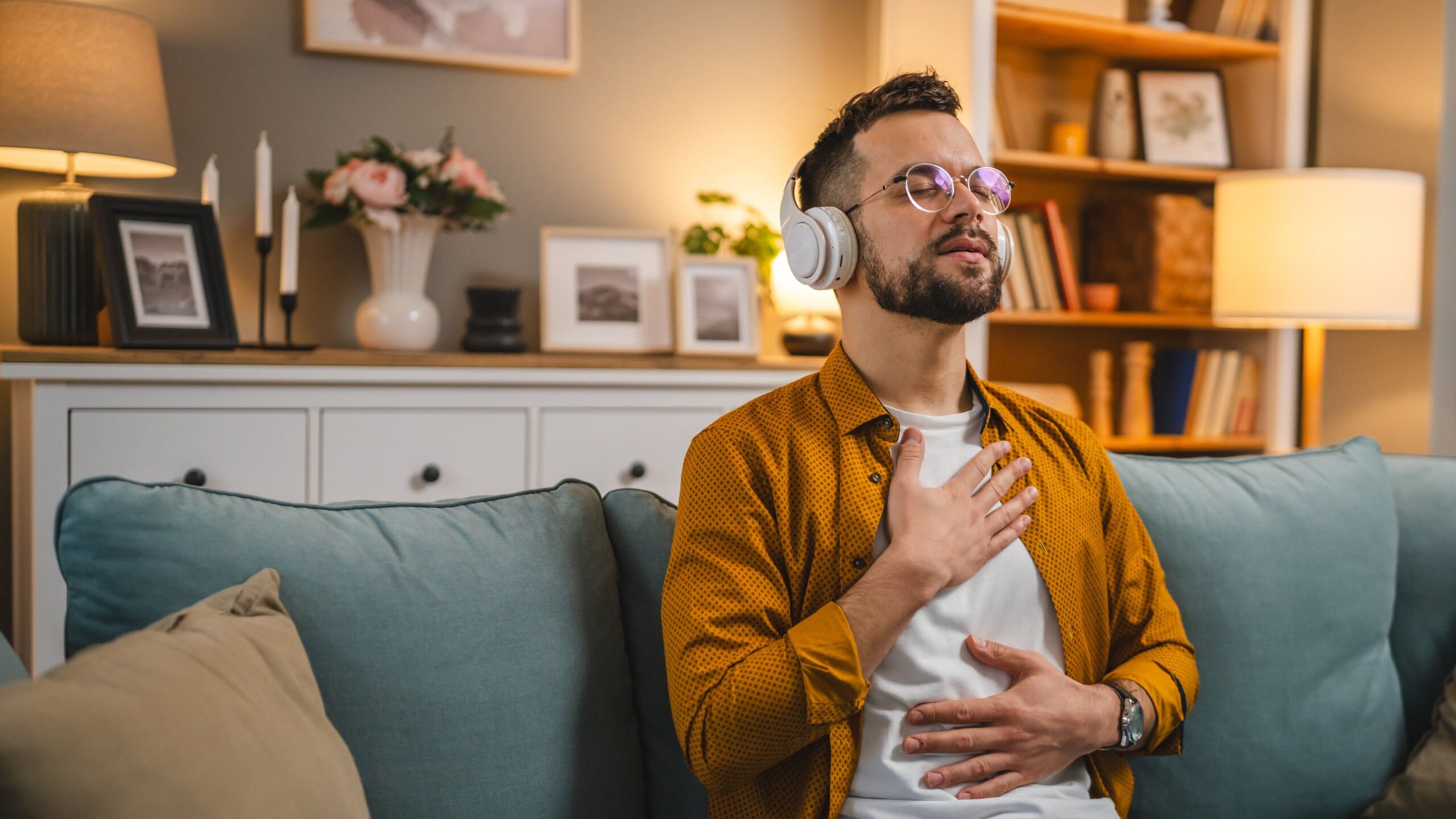
Tips for how to stop anticipatory anxiety affecting your sleep
So, now that we know the overall impact of anxiety on your sleep quality, how can you go about getting a good night’s sleep before a big life event so that you feel rested enough to do it justice?
Well, according to MattressNextDay Sleep Expert, Martin Seeley, it all comes down to more than just simple relaxation techniques. Instead, he recommends combining them with the following core practises as a way to get consistently better sleep, even when not experiencing anxiety:
- Practice good sleep hygiene – regardless of whether or not you’re feeling anxious before bed, having a good sleep routine in place will do wonders for giving you the energy and willpower necessary to curb anxiety when it does appear. Martin recommends getting up and going to sleep at the same time every day (yes, even on weekends) to establish a good rhythm, and making your bedroom more sleep-friendly if possible. He also notes that screens should be turned off in the hour before bed so that your brain can settle.
- Avoid caffeine and alcohol – as great as caffeine can be first thing the morning to give us the pep we need to face the day ahead, it’s certainly not something you should overindulge in. Too much caffeine has actually been shown to increase symptoms of anxiety, and needless to say, drinking caffeine before bed will just keep you awake. Alcohol, on the other hand, might make it easier to drift off, but you certainly won’t feel well-rested upon waking. So, make sure you at least try to avoid these on the night before any big event to ensure good sleep.
- Find time to exercise – while it might not directly relate to sleeping, finding the time for regular exercise is a must for those who want a better sleep routine. Exercise during the day will help tire your body out for the evening while also releasing endorphins, which can help to combat anxiety sensations. Not only that, but studies show that even a walk during the day can be enough to settle our nerves and clear our heads well before going to bed.
- Find a relaxation method that works for you – although there are plenty of relaxation methods out there to help with getting to sleep and calming our minds, there is no one-size-fits-all option for everyone. Instead, you should try a variety of relaxation methods to find out which ones work best for you. Be it reading, breathing techniques, meditating, journaling, or even trying a sound bath, try them all and pick those that seemed to have the most notable impact.
- Cut out the screens – while we’ve already mentioned this point in brief, it’s certainly one that’s worth reiterating again. At the end of the day, if you’re looking at a laptop or phone screen before bed, you’re not going to go to sleep anytime soon. The bright light from these screens keeps our minds awake and causes them to stay active and can often contribute to any racing thoughts we might be experiencing. In fact, giving yourself time to detox from them during the day can be hugely beneficial, as it gives your mind time to process your thoughts and properly analyse why you might be feeling anxious about an upcoming event.
Start getting better sleep with MattressNextDay
At the end of the day, sleep anxiety like that which we’ve just discussed is going to affect all of us at some point in our lives, and there’s no reason to be ashamed of it.
As we said right at the start, if you’re feeling anxiety of any kind before an event, reach out to friends and family and talk about it, and if you feel you need to, speak with a medical professional for more help.
Of course, if you feel that your sleep is being impacted by more than just anxiety, and you’re considering whether your sleep set-up need a refresh, then take a look at the MattressNextDay range today!
From double mattresses and divan bed frames that will suit any room to king-sized beds for those on a bigger budget, there’s something to everyone’s taste in our collection. Get in touch today to find out more about our next day and free delivery options so you can enjoy your new bed that much sooner.
